Found in Space II
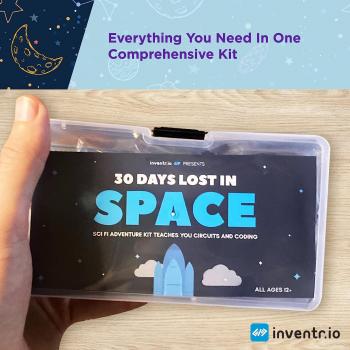
- School:
- Hinson Middle School
- Subject:
- Career & Technical Education
- Teacher:
- Steven Pruitt
- Frances Davies
- Students Impacted:
- 70
- Grade:
- 6-8
- Date:
- September 13, 2023
Investor
Thank you to the following investor for funding this grant.
Anonymous Family Foundation - $966.00
Original Grant Overview
Goal
Mayday! Mayday! You are on an interplanetary mission and your shuttle has crashed on a rocky planet, in the ocean! Your computer control panel is broken. You cannot communicate with the rescue mission. You are lost in space.
“Cadet. Cadet. Do you copy? This is rescue shuttle control. We know this may sound overwhelming, but you need to learn to code and wire so you can fix your destroyed control panel. It will take you exactly thirty days to repair your shuttle and we will guide you through all the steps necessary, from coding to wiring up your fancy new hardware setup.” Where you were once lost in space, you will now be found in space!
This inventive story line launches students into the 30 Days Lost in Space Adventure Kit Challenge. Developed by Florida based InventrKits LLC, the adventure kit inspires middle school students to “problem-solve their way out of all the messy consequences of getting stranded on an alien planet.” Over the course of 30 days, 6th and 7th grade technology students work together to complete a coding and circuits challenge, bringing them from beginner to builder of this clever electronics kit.
The goal of this project and grant is to make coding and electronics wiring entertaining and accessible to students. Students will learn electronic wiring and coding hands-on skills while developing problem solving skills, increasing critical thinking skills, and engaging in teamwork and communication skills to save themselves and fix their spaceship. The InventrKits Adventure Kit 30 Days Lost in Space will provide students with an opportunity to learn these valuable skills in a fun and engaging way and will be an excellent addition to Ormond Beach and Hinson Middle School’s STEM program.
What will be done with my students
The 30 Days Lost in Space Adventure Kit is an electronics kit that teaches programming and wiring. The Adventure kit is designed for ages 12 and older. The kit's story takes place on an alien planet where your spaceship has crash-landed at the bottom of the ocean.
The kit was developed by a retired NASA researcher and college professor. It is a versatile and reusable educational resource. The kits can be used by individual students or partner groups.
Students in grades 6 and 7 learn to program the HERO R3 Board with USB, included in the Adventure kit. Called the Hero board, it is derived from an Arduino UNO R3 design. An Arduino board is a microcontroller circuit board ideal for learning electronics and coding. InventrKits has adapted the hardware for the 30 Days Lost in Space kit.
With the help of the kit and software, students learn basic electronic parts, how to read data, how to program and wire a keypad, how to use an encoder, and ultimately build a new working launch panel for their crashed spaceship. The skills learned and used in the 30 days lost in space challenge are in great demand in manufacturing, engineering, aerospace, and robotics industries. Students will learn skills that have real world applications.
Using their computer and reading skills, they follow the online curriculum through 6 chapters, each solving a specific problem using the 30 Day Lost in Space Adventure Kit. The online curriculum includes formative and summative assessments, completed while students complete the hands-on projects.
With the kits and the web-based curriculum, students work through six chapters, each solving one step of the problem.
Chapter 1 – Getting you out of the darkness and into the cozy light. In this chapter you will learn how to use your HERO board and basic parts such as LED’s, resistors, the breadboard, and switches.
Chapter 2 – Repair your damaged solar array and refuel your battery. In this chapter you will learn how to read data from your photoresistor and how to use a multi-colored LED.
Chapter 3 – Locking down your ship with proper security systems and alarms. You will learn how to program and wire a keypad and a passive buzzer.
Chapter 4 – Returning you back to the surface of the water and preparing you to get home. You will learn how to use a seven-segment display and rotary encoder in these projects.
Chapter 5 – Blast off… Wait – first we need to build you a working launch panel. This is where things get really fun and we add the OLED Display allowing you to have a mini monitor display for your control panel. Put everything together from the previous chapters and get ready to go into space.
Chapter 6 – Defend your ship from incoming invaders and get home safely. In the final chapter you design your own mini-game using the OLED screen and inputs.
This inventive kit and activities relate to many technological standards and benchmarks. The Career and Technology (CTE) standards include:
CTE 08.0 Demonstrate an understanding of the attributes of design.
CTE 09.0 Demonstrate an understanding of engineering design.
CTE 10.0 Demonstrate an understanding of the role of troubleshooting, research and development, invention and innovation, and experimentation in problem solving.
CTE 11.0 Demonstrate the abilities to apply the design process.
CTE 12.0 Demonstrate the abilities to use and maintain technological products and systems.
CTE 13.0 Demonstrate the abilities to assess the impact of products and systems.
CTE 17.0 Demonstrate an understanding of and be able to select and use information and communications technologies.
CTE 21.0 Demonstrate proper and safe procedures while working with technological tools, apparatus, equipment, systems, and materials.
CTE 22.0 Exhibit positive human relations and leadership skills.
CTE 23.0 Discuss individual interests, aptitudes, and opportunities as they relate to a career.
The CTE standards have the following benchmarks:
08.0 Demonstrate an understanding of the attributes of design.
08.01 Use design as a creative planning process that leads to useful products and systems.
08.02 Explain why there is no perfect design.
08.03 Identify criteria and constraints that are requirements for a design.
08.04 Demonstrate the ability to properly identify different resources used in projects.
09.0 Demonstrate an understanding of engineering design.
09.01 Identify the design process involving a set of steps, which can be performed in different sequences and repeated as needed.
09.02 Define brainstorming as a group problem-solving design process in which each person in the group presents his or her ideas in an open forum.
09.03 Model, test, evaluate and modify designs to transform ideas into practical solutions.
10.0 Demonstrate an understanding of the role of troubleshooting, research and development, invention and innovation, and experimentation in problem solving.
10.01 Use troubleshooting as a problem-solving method used to identify the cause of a malfunction in a technological system.
10.02 Define invention as a process of turning ideas and imagination into devices and systems and innovation as the process of modifying an existing product or system to improve it.
10.03 Identify technological problems that are best solved through experimentation.
11.0 Demonstrate the abilities to apply the design process.
11.01 Apply a design process to solve problems in and beyond the laboratory-classroom.
11.02 Specify criteria and constraints for the design.
11.03 Test and evaluate the design in relation to pre-established requirements, such as criteria and constraints, and refine as needed.
11.04 Make a product or system and document the solution.
12.0 Demonstrate the abilities to use and maintain technological products and systems.
12.01 Use information provided in manuals, protocols, or by experienced people to see and understand how things work.
12.02 Use tools, materials, and machines safely to diagnose, adjust, and repair systems.
12.03 Use computers and calculators in various applications.
13.0 Demonstrate the abilities to assess the impact of products and systems.--The student will be able to:
13.01 Use data collected to analyze and interpret trends in order to identify the positive or negative effects of a technology.
13.02 Interpret and evaluate the accuracy of the information obtained and determine if it is useful.
17.0 Demonstrate an understanding of and be able to select and use information and communication technologies.
17.01 Identify information and communication systems that allow information to be transferred from human to human, human to machine, machine to machine, and machine to human.
17.02 Define communication systems made up of a source, encoder, transmitter, receiver, decoder, and destination.
21.0 Demonstrate proper and safe procedures while working with technological tools, apparatus, equipment, systems, and materials.
21.01 Follow classroom/laboratory safety rules and procedures.
21.02 Demonstrate good housekeeping at workstations within a classroom/laboratory.
21.03 Conduct classroom/laboratory activities and equipment operations in a safe manner.
21.04 Exercise care and respect for all tools, equipment, and materials.
21.05 Identify color-coding safety standards.
21.06 Safely use hand tools and power equipment.
21.07 Explain fire prevention and safety precautions and practices for extinguishing fires.
21.08 Identify harmful effects/potential dangers of familiar hazardous substances/devices to people and the environment.
22.0 Exhibit positive human relations and leadership skills.
22.01 Perform roles in a student personnel system or in a career and technical student organization (CTSO).
22.02 Work cooperatively with others.
23.0 Discuss individual interests, aptitudes, and opportunities as they relate to a career.
23.01 Describe individual strengths and weaknesses.
23.02 Discuss individual interests related to a career.
23.03 Identify careers within specific areas of technology.
23.04 Explore careers within specific areas of interest.
Language Arts Standards for reading and speaking:
LAFS.7.RI.2.4
Determine the meaning of words and phrases as they are used in a text, including figurative, connotative, and technical meanings; analyze the impact of a specific word choice on meaning and tone.
LAFS.7.RI.4.10
By the end of the year, read and comprehend literary nonfiction in the grades 6–8 text complexity band proficiently, with scaffolding as needed at the high end of the range.
LAFS.7.L.3.4
Determine or clarify the meaning of unknown and multiple-meaning words and phrases based on grade 7 reading and content, choosing flexibly from a range of strategies.
LAFS.7.L.3.5
Demonstrate understanding of figurative language, word relationships, and nuances in word meanings.
LAFS.7.L.3.6
Acquire and use accurately grade-appropriate general academic and domain-specific words and phrases; gather vocabulary knowledge when considering a word or phrase important to comprehension or expression.
LAFS.7.SL.1.1
Engage effectively in a range of collaborative discussions (one-on-one, in groups, and teacher-led) with diverse partners on grade 7 topics, texts, and issues, building on others’ ideas and expressing their own clearly.
LAFS.7.SL.2.4
Present claims and findings, emphasizing salient points in a focused, coherent manner with pertinent descriptions, facts, details, and examples; use appropriate eye contact, adequate volume, and clear pronunciation.
LAFS.7.SL.2.5
Include multimedia components and visual displays in presentations to clarify claims and findings and emphasize salient points. Use context as a clue to the meaning of a word or phrase.
LAFS.7.SL.2.6
Adapt speech to a variety of contexts and tasks, demonstrating command of formal English when indicated or appropriate.
Career and Technology Education Critical Thinking standards:
CTE 55: Solve problems using critical thinking skills, creativity and innovation.
CTE 55.01 Employ critical thinking skills independently and in teams to solve problems and make decisions.
CTE 55.02 Employ critical thinking and interpersonal skills to resolve conflicts.
CTE 55.03 Identify and document workplace performance goals and monitor progress toward those goals.
CTE 55.04 Conduct technical research to gather information necessary for decision-making.
Mathematics Standards include:
MAFS.7.EE.2 : Solve real-life and mathematical problems using numerical and algebraic expressions and equations.
The kits are ideally suited to teach these standards in a unique and engaging manner, to appeal to students of all skills and abilities.
Benefits to my students
Funding this project will target these student learning skills:
1. Introduce basic circuitry concepts and principles, without the need for soldering.
2. Introduce or reinforce basic coding and computer literacy skills.
3. Develop or build team and life skills, such as communication, problem-solving, and critical thinking.
4. Strengthen communication skills, such as active listening, public speaking, and writing.
5. Strengthen critical thinking skills, such as analysis, evaluation, and synthesis.
6. Build student self-efficacy through perseverance and success at completing each of the 6-chapter missions and repair builds.
7. Assist students to identify their strengths and weaknesses and explore careers based on the project’s activities.
Students will benefit by learning to work independently and with a partner. They will use career-based skills, also known as soft skills, to work together effectively to complete the challenge. Students will use hands-on technical skills to wire, program and read data. A unique aspect of the kit is no hand tools are necessary. The only tool required is a laptop or computer with an open USB port to program the HERO board and an internet connection to access the challenge. No screwdrivers, electric drills, or sharp hand tools needed for this kit. This helps lower school costs while increasing learning for the students. Volusia County Schools 1 to 1 computer distribution to students provides the needed laptop.
Budget Narrative
We are requesting $966 to purchase 23 - 30 Days Lost in Space Adventure Kits for this grant. The kits include all the equipment needed to facilitate a successful learning experience. Kits are tax free and shipping is included in the price.
The 23 kits provided by this Futures Teacher Mini-Grant will be shared between Hinson Middle School and Ormond Beach Middle School.
We will be submitting a CAPE fund request and Perkins funds request through the Volusia County School District’s CTE department to purchase an additional 77 kits at an expected price of $3,234 to provide a total of 100 Adventure Kits for this electronics curriculum.
Additional funds are raised through student and family donations.
In kind donations from each teacher include 2 hours to view video tutorials, 2 hours to register students in the curriculum, 3 hours to explore the kits and curriculum, 6 hours to arrange Volusia County School aligned formative and summative assessment assignments and grading, and 2 hours to create physical storage for the project. 15 hours of in-kind donation will be donated by each teacher, a total of 30 hours, at an expected value of $33 an hour, total in-kind donation by each teacher of $495, a total of $990. We appreciate your consideration to fund this project through the FUTURES Foundations Teacher’s Mini-Grant Program.
Items
| # | Item | Cost |
|---|---|---|
| 1 | Adventure Kit 1 – 30 Days Lost in Space | $42.00 |
| 2 | Adventure Kit 1 – 30 Days Lost in Space | $42.00 |
| 3 | Adventure Kit 1 – 30 Days Lost in Space | $42.00 |
| 4 | Adventure Kit 1 – 30 Days Lost in Space | $42.00 |
| 5 | Adventure Kit 1 – 30 Days Lost in Space | $42.00 |
| 6 | Adventure Kit 1 – 30 Days Lost in Space | $42.00 |
| 7 | Adventure Kit 1 – 30 Days Lost in Space | $42.00 |
| 8 | Adventure Kit 1 – 30 Days Lost in Space | $42.00 |
| 9 | Adventure Kit 1 – 30 Days Lost in Space | $42.00 |
| 10 | Adventure Kit 1 – 30 Days Lost in Space | $42.00 |
| 11 | Adventure Kit 1 – 30 Days Lost in Space | $42.00 |
| 12 | Adventure Kit 1 – 30 Days Lost in Space | $42.00 |
| 13 | Adventure Kit 1 – 30 Days Lost in Space | $42.00 |
| 14 | Adventure Kit 1 – 30 Days Lost in Space | $42.00 |
| 15 | Adventure Kit 1 – 30 Days Lost in Space | $42.00 |
| 16 | Adventure Kit 1 – 30 Days Lost in Space | $42.00 |
| 17 | Adventure Kit 1 – 30 Days Lost in Space | $42.00 |
| 18 | Adventure Kit 1 – 30 Days Lost in Space | $42.00 |
| 19 | Adventure Kit 1 – 30 Days Lost in Space | $42.00 |
| 20 | Adventure Kit 1 – 30 Days Lost in Space | $42.00 |
| 21 | Adventure Kit 1 – 30 Days Lost in Space | $42.00 |
| 22 | Adventure Kit 1 – 30 Days Lost in Space | $42.00 |
| 23 | Adventure Kit 1 – 30 Days Lost in Space | $42.00 |
| Total: | $966.00 |
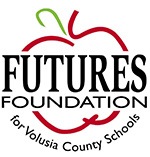
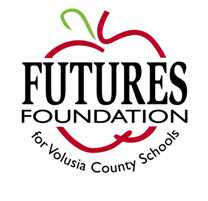
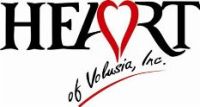


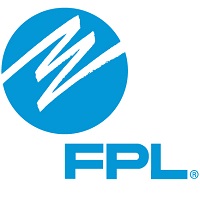





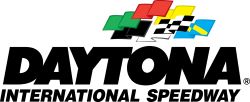
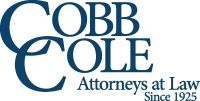

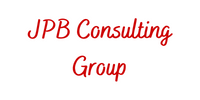
Share
Please share this page to help in fulfilling this grant.
Email to a Friend